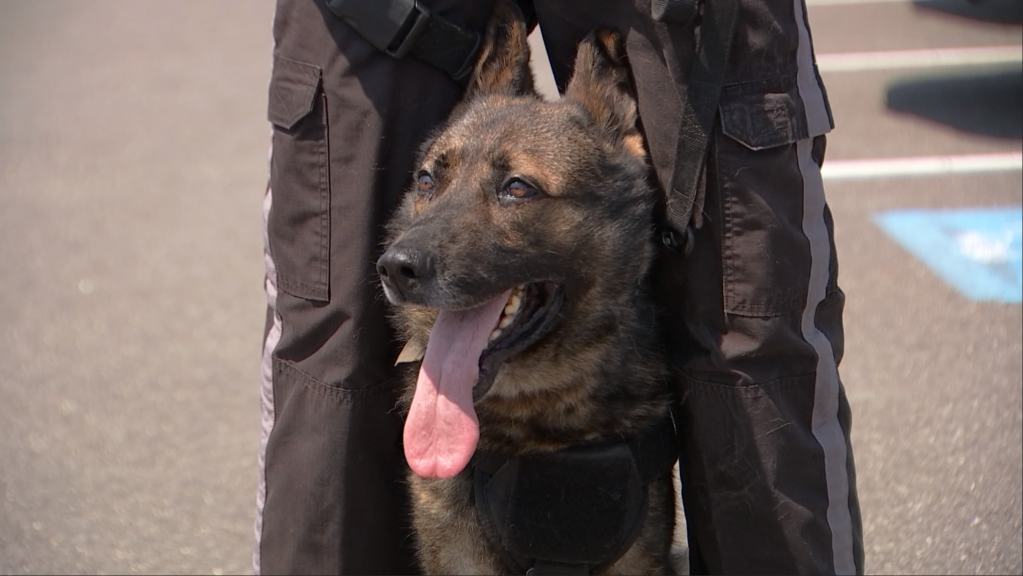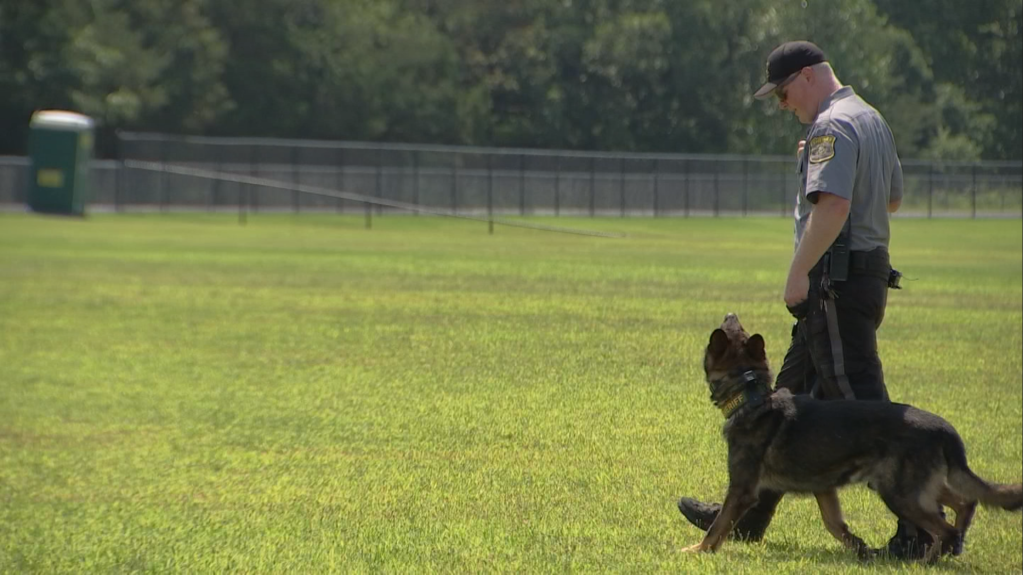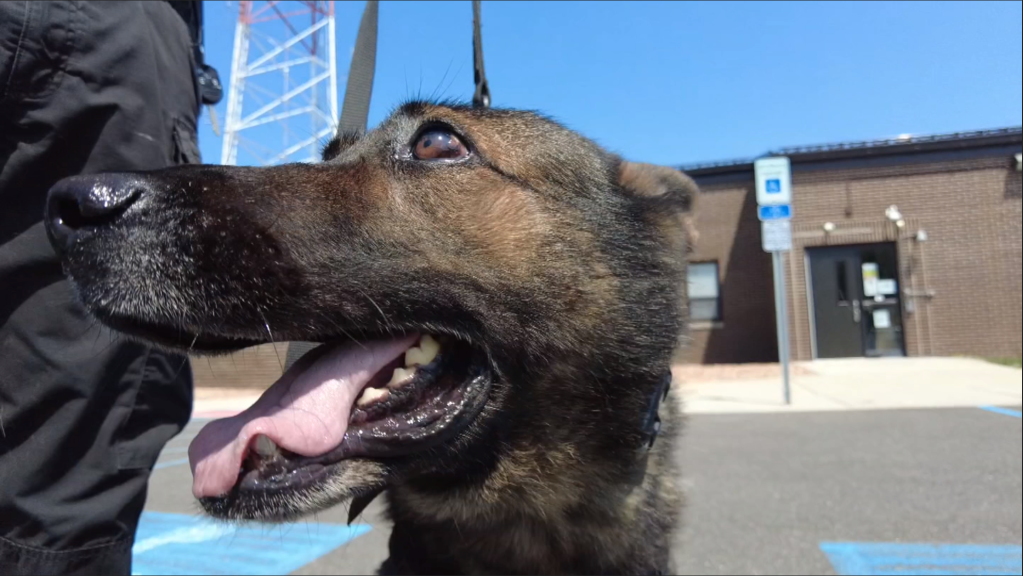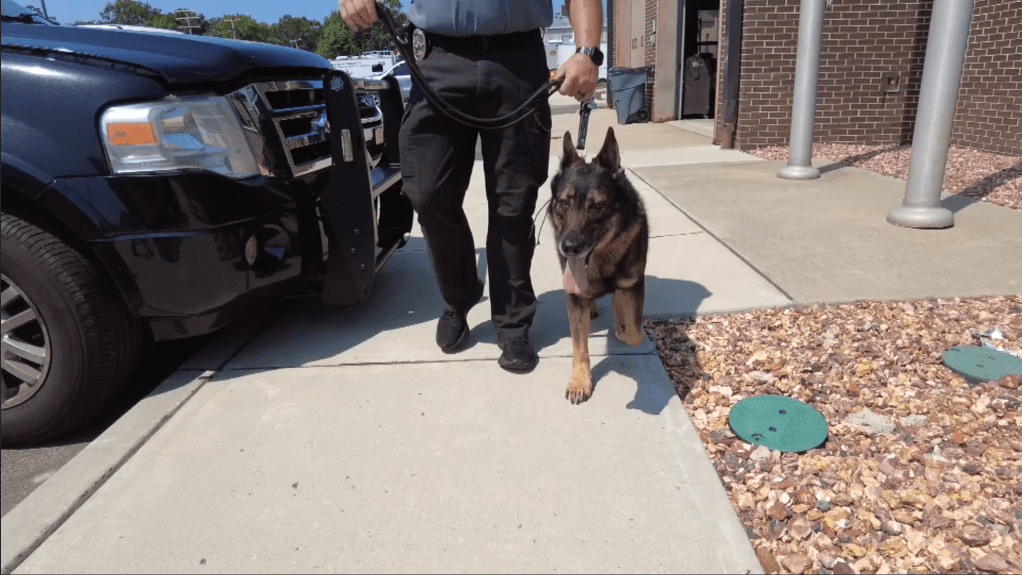After six years in the Ocean County Sheriff’s Office, Stosh is at the peak of his career: he has arrested drug dealers and found large quantities of narcotics in cars.
But because German Shepard was trained in marijuana detection and small amounts of the drug are now legal in New Jersey, Stosh got the pink note.
He and three other K-9s from the Ocean County Sheriff’s Office were either fired or sent into early retirement.
“They all contain marijuana. So they’re pretty much very limited in their abilities right now, â€investigator James Riley told NBC10 as he stood next to Brutus, a 9-year-old German Shepard narcotic dog.
This is happening all over New Jersey and the country. The police and sheriff departments decide what to do with their marijuana-trained dogs. Some remove the dogs, others keep them and use them for patrol, search and rescue.
The bread and butter of Ocean County’s K-9 narcotic dogs establish the probable cause of the vehicle stops – meaning officers can search a car without a search warrant. The smell of the dog is enough to initiate a search of the vehicle.
“We do a lot of research for residences or buildings, but the bulk of it is stopping motor vehicles,†Riley said.
But this research is completely forbidden now.
“If he said a car contained marijuana… that would be an illegal search,†Riley said.

And the New Jersey attorney general’s office agrees.
“A dog trained to alert officers to marijuana can no longer be used to establish the probable cause of a search, as it will react and alert officers in circumstances where there is not, in fact, a crime committed. , that is, when there is marijuana, which has been decriminalized, â€the office wrote in an e-mailed statement.
Narcotic dogs are trained to smell certain narcotic drugs – usually marijuana, cocaine, heroin, and methamphetamine – but they are unable to tell their handler what drugs they smell. They just smell like an illegal substance.
Once a dog has been trained to smell marijuana, he can no longer be re-educated to no longer smell it.
The AG’s office has not issued any official guidelines, but told NBC10 in an email that dogs trained in marijuana can still be used in searches when a search warrant has been issued and that the dog does not establish a probable cause.
The Camden County Sheriff‘s Office uses two of its marijuana-trained dogs for these types of court-approved searches, and is not removing the dogs. Plus, their dogs are trained on patrol so they can be used to help.
The New Jersey State Police have nine dogs that have also been trained in marijuana and are guarding them for patrol and other duties.
But Don Slavik, executive director of the US Police Canine Association, says keeping dogs trained in marijuana is risky.
“They can come across marijuana and go out there, sniff and get to a final position, which is what they’re trained for. And I think that’s the problem, â€Slavik said. “Their noses are still sniffling.”
Slavik said police departments he spoke to in other states where marijuana has been legalized or decriminalized are simply removing dogs and getting new ones.
“They are rewarded for sniffing and doing what they are supposed to do. And … they don’t stop. They don’t realize that they can’t stop. They can not. They are not supposed to do it, â€he said.
Washington Township Police Chief Patrick Gurcsik said he no longer uses his five marijuana-trained dogs for drug work. The dogs have been trained in tracking, so he uses them only for this. But monitoring is 25% of their work, so they won’t be as busy as they used to be.

His department’s K-9 unit is funded by donations, including what he called a state-of-the-art K-9 kennel built in 2015. He’s not sure if the community will want the department to buy. new narcotic dogs that are not imbued with marijuana. .
“We are considering all options,” he said. “But we may not replace them. “
A police dog can cost around $ 5,000 without training, according to the president of the Police Canine Association. And then several thousand dollars for training if the training is not done in-house.
But the real cost is the manager’s salary.
“You assign an officer for three quarters of a year,†Riley said. “You’re going to lose them out of the way for a considerable amount of time. “
Riley told NBC10 the training can take up to nine months.
Like other state departments, Ocean County had seen the writing on the wall with decriminalization of marijuana and they made sure their last K-9 Police purchase was an untrained dog. to detect it.

But it’s just a dog for the entire county – and the municipalities it serves – to research drugs. Some township police departments have newer dogs. But Riley says it’s probably a total of eight or nine dogs, compared to the 24 countywide total that were previously available.
“It has hampered drug investigations, â€he said.
And the dogs miss the job, according to Stosh’s manager, Agent Kevin Fennessy.
Stosh had at least four years to work.
“They are in the prime of their lives right now. And we just have to shut them down, â€Riley said.
As for retired dogs, their owners will usually adopt them as pets. And for those handlers who can’t adopt their K-9 partner, there are some nonprofits that will help find new homes for the dogs.
Luckily for Stosh and Brutus, each of their handlers plans to keep them as pets.
And even if the police dogs are retired, Ocean County taxpayers will continue to pay for their health care for the rest of their lives, according to Fennessy.
“He could be off the road for two years if something happens,” he said. “And he needs major surgery or something, the county will pay for that.”

 Christ Yoder
Christ Yoder



